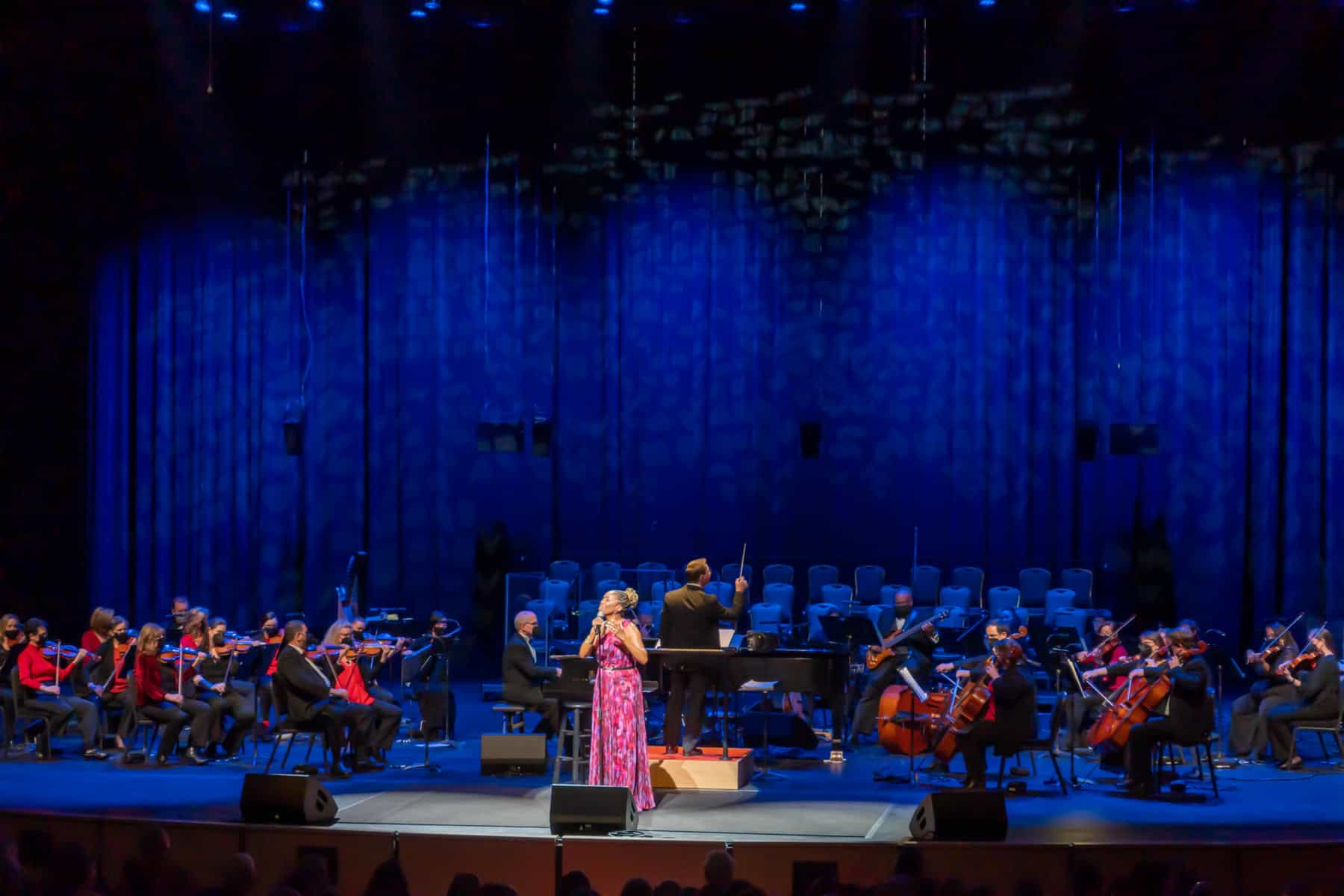
Our Story
Mission Statement
The mission of the Greensboro Symphony Orchestra (GSO) is to enrich the cultural life of Greensboro and surrounding areas through the development, promotion, and maintenance of a program of quality music and music education. Its primary vehicle for the conduct of these activities is the Greensboro Symphony Orchestra, which presents concerts, special events, educational opportunities, and related activities.
Community Involvement
The GSO offers a comprehensive suite of education programs. Highlights of these programs include OrKIDStra and its weekly music classes and annual concerts for 4-year-olds in Head Start across five counties; The Lillian Rauch Beginning Strings Program at elementary schools offering group classes and private lessons; the Greensboro Symphony Youth Orchestra program of multiple ensembles; School Concert Programs serving over 36,000 students each year; and community programs, including performances at retirement homes, juvenile detention centers, and CaringSound at Cone Hospital.
History & Conductors
The roots of the GSO extend back to the 1920s when a group of musicians at Woman’s College (now UNCG) banded together under the direction of Henry Fuchs. In 1939, the Dean of Music at the Woman’s College, H. Hugh Altvater, formally organized the group as the Greensboro Orchestra, which was financially sustained by the College.
In 1951, when Concertmaster George Dickieson, head of the Woman’s College Violin Department, became the Conductor, the orchestra began to gain considerable community support and became a member of the American Symphony Orchestra League. An advisory committee was formed to further the development of the orchestra, which later became independent of the University.
In 1959, the Greensboro Symphony Society was created as an independent organization with the goals of promoting and fostering musical culture and education in the community. It eventually assumed total financial responsibility for the Orchestra. Under the leadership of Miles Wolff, the first president of the Symphony Society and editor of the Greensboro Daily News & Record, the Society was incorporated as a nonprofit organization that same year.
In 1963, Thomas Cousins was appointed Conductor. The Orchestra’s steady growth, coupled with its image in the community, prompted the Society’s decision to assume responsibility for part of the conductor’s salary. In 1964, Miles Wolff led the development of the Greensboro Symphony Guild to aid the Greensboro Symphony Society in the promotion of an orchestra in the community. The Junior League was enlisted to help organize this community-based Guild comprised of dedicated women.
In 1967, Sheldon Morgenstern became the first Conductor whose salary was fully paid by the Society. In 1975, Dr. Peter Paul Fuchs became the Music Director/Conductor. After the 1986/1987 season, Maestro Fuchs was honored with the title of Conductor Laureate. Paul Anthony McRae joined the Orchestra as its Music Director in June of 1987 and led the Orchestra for more than eight seasons. Stuart Malina, a graduate of Harvard University, Yale School of Music, and the Curtis Institute of Music, became the Symphony’s sixth Music Director in May of 1996. Upon his departure in 2003, the Greensboro Symphony appointed world-renowned violinist Dmitry Sitkovetsky as its seventh Music Director.
In 2023, after an unprecedented 20 years as Music Director and an historic move to the Steven Tanger Center for the Performing Arts, Maestro Sitkovetsky stepped down from his role, spurring a new international search for replacement. After a year of interviews, a search committee comprised of Greensboro Symphony board members, musicians, and staff, appointed a list of seven guest conductors for the 2023/2024 season, each vying to win the role of Music Director. At the beginning of the 2024/2025 season, it was announced that Australian conductor Christopher Dragon, Resident Conductor of the Colorado Symphony, and Music Director of the Wyoming Symphony, would take up the mantle as the new Music Director of the Greensboro Symphony Orchestra. Learn more here.
Endowment Fund
The Greensboro Symphony Endowment Fund was started in 1986 when the Greensboro Symphony Guild (who still supports the Endowment annually) contributed $50,000 toward endowing the $250,000 Concertmaster’s Chair. The endowment of the Chair was completed in 1995, and Guild member Kay Edwards and Maurice Jennings launched a successful campaign that accomplished the $1 million mark in the Fund. The fund surpassed $2.5 million during the 2001-2002 season.
The Endowment has been under the leadership of Guild member Caroline M. Lee for many years. Led by Barbara Cone, a special initiative was undertaken by Endowment donors who contributed additional funds in honor of Caroline Lee’s dedication to the GSO Endowment. The Associate Concertmaster’s Chair has been endowed in her name.
Associations
The Greensboro Symphony Orchestra is a funded member of the North Carolina Arts Council.
